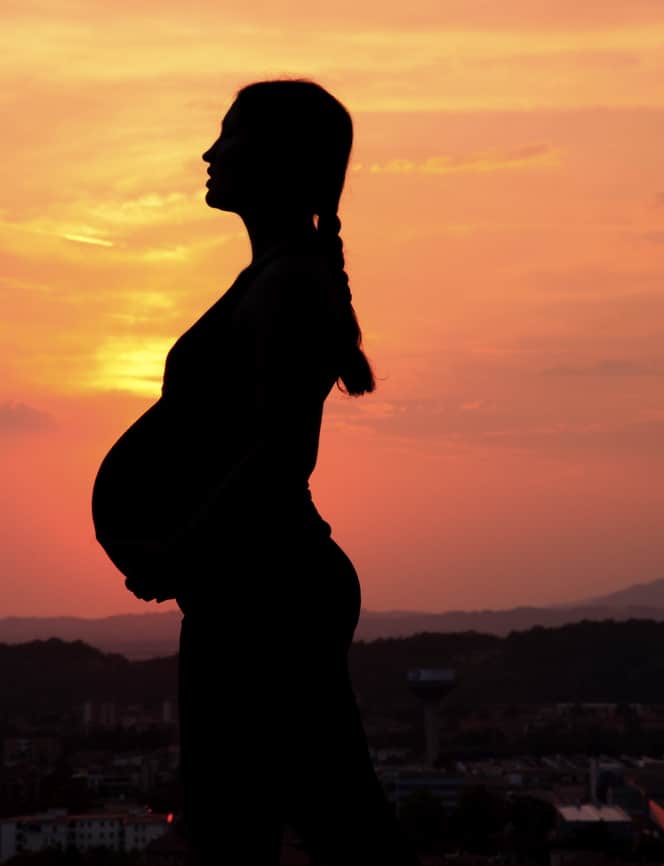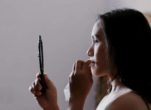
The Fallacy of Belonging
For the nine months that my daughter grew in my womb, I was under the illusion that she was mine. I don’t mean mine in the sense that she shared my genetic material. I mean I believed that she belonged to me.
be·long [bih-lawng, -long]
Verb phrase belong to,
a. to be the property of: The book child belongs to her.
My husband and I had knowingly, purposefully created this child. She was housed in my belly. I was constantly reminded that everything I did impacted her tiny, developing self in a big way. Get enough sleep. No soft cheeses, no alcohol.
In the beginning, my fertilized egg was simply dividing, making copy upon copy of the DNA my husband and I provided. By the time that miniscule ball of cells lodged itself in the side of my uterus, it had morphed into a core of embryonic cells with a protective shell. A blastocyst. My daughter had formed her first layer of defense, a shield to insulate her from the outside world before that little pink plus sign even showed up on the plastic stick. I was blissfully rubbing my belly, reading parenting books and feeling a sense of union with my child. I was picking through the list of our traits like a bowl of cocktail nuts, gently pushing aside the too-common peanuts and the over large Brazil nuts, concocting the perfect little person in my mind. Please let her teeth be naturally straight like her father. Please let her have eyesight like mine. Have his strategic mind and my compassionate heart, little one. I wasn’t thinking about the fact that her most important job from this moment forward would be to separate, differentiate and become an individual.
My first inkling that this child might have ideas of her own came in the middle of the second trimester. She shimmied and shook, danced and cavorted inside me, pushing against my flesh in a gymnastics routine of her design. She had no worries about her mom getting enough sleep; she was making herself known. Within a few weeks, she began demanding fresh pineapple and German pancakes. The burning in my gut was unlike anything I had ever known, and I developed a pack-a-day Tums habit just to cope with her cravings.
I went into labor with my little girl sitting posterior in my womb; her head pressed firmly up against my tailbone. While I writhed in back labor, two doctors worked in tandem, kneading my belly like so much bread dough, pushing and pulling to turn her into a position where she could be safely delivered. With each subsequent contraction, she calmly somersaulted herself right back where she had been before without regard for the work or pain she was creating. Tenacious and precise, this little one was delivered after 40 hours of labor on her due date in the posterior position.
be·long [bih-lawng, -long]
Verb phrase belong to,
b. to be a part or adjunct of: That lid child belongs to this jar her parents.
When that miracle of flesh and blood, hair and breath and wonder slid out of my body and the cord was cut, it was hard to determine where I left off, and my daughter began. She looked exactly like I had on the day I was born – skinny and long with feathery black hair and olive skin. On the counter at home, our baby photos sat side-by-side, astonishing in their similarities. It was easy to believe that she was a miniature copy of me.
And yet, this distinct, wholly formed creature had emerged from my skin firmly ensconced in her own. She had driven the birth process just as much as my body had, and the abrupt deflation of my taut belly mirrored the slump in my spirits. In the instant, when she was free of the birth canal, I felt simultaneously exhilarated and bleak. I had lost the miracle of us-ness but was thrilled to meet my child. The many months I had spent conjuring possibilities for this baby – boy or girl, small or large, somber or goofy – were now moot. She rested on my chest and our eyes met. Electricity resonated between us, the depths of which I could not possibly fathom.
From the instant, my daughter was born she began to assert her independence in a multitude of ways. She went from needing me to breathe and eat for her to — whoosh — breathing, sucking, pooping. She ate when she was hungry, slept when she was tired, refused to conform to any schedule I attempted to impose.
For weeks, after she was born, I felt phantom kicks in my belly. I recalled my impatient anticipation of her birth in those last few weeks of pregnancy at the same time that I mourned the loss of our basic, elemental union. I began to realize that parenting is an exercise in opposites. The crashing together of the two most profound human emotions: love and fear, produces an energy like no other. The pure, golden light of mother-love was quickly tainted by the crushing realization of responsibility. The sudden dawning that no class could prepare me. The weight of each and every decision made on behalf of this helpless human was accompanied by the solid weight of warmth wrapped in a flannel blanket in my arms. I wanted to spend every second gazing down at my daughter, consumed by the sight, smell and heft of her.
My all-consuming adoration was tinged with pangs of absolute terror every single time I held her, touched her, looked at her ruddy cheeks or her tiny toes. That explosive burst of love existed side-by-side with the metallic ache of fear; the joy of having this thing I loved so much and the possibility of one day not having it.
be·long [bih-lawng, -long]
Etymology, word origin
mid-14c., “to go along with, properly relate to,” from be- intensive prefix, + longen “to go,” from Old English langian “pertain to, to go along with,” of unknown origin.
More and more, my daughter began to assert herself as I simultaneously celebrated and lamented her fierce independence. I struggled to put limits on her, as much out of fear for her physical safety as well as some fuzzy notion of what a parent was supposed to look like. I proudly recognized myself in her. Her sense of priorities, her stubborn determination to conquer any challenge she deemed worthy of her attention, those hit a familiar chord. I identified with her and again, blurring that line between the two of us as surely as if I were reattaching the umbilical cord.
I watched her methodical attempts to walk, pulling herself to her feet, shimmying along the couch, practicing standing in the middle of the room to catch her balance. For days, she seemed on the verge of walking, but she wouldn’t take a step until she was certain, standing and waving her arms one day, standing and clapping the next. I do the same in yoga, starting eagle pose by entwining my arms and fixing my gaze before ever lifting my leg to wrap it around because I don’t want to fall. Two weeks after she had begun perfecting her standing balance, Eve took off walking. She never fell. I took credit for whatever part of her that had driven her to do it that way. That was me.
I had the solid notion that this child was a part of me, like one of the rays of a sea star, but she was never that. I was fooled (by our similarities) into believing that who I am, determines the person she will be, the person she ought to be. When Eve works hard at something, shows true generosity, laughs in a certain way, I see myself. When she is hateful or selfish or ignorant, I take responsibility for that, too. I worry that I have done something to create that, as if there is a dark spot on my DNA that wormed its way into every cell of her body. I worry that I will be judged for her mistakes with the same fervor that I am praised for her accomplishments. In those moments, I believe that sharing my DNA means that she belongs to me in the most elemental way.
————————————————————————————-
My father was a fierce disciplinarian. My siblings and I paid dearly for our mistakes. I often wondered why he treated us so harshly. I know now that my father’s rage came from a place inside him where he confused my behavior with his self-worth. A Marine whose childhood experiences taught him he could never be good enough; he was desperate to mold his children into something he could be proud of, something he could show off to others. He longed to line us up like shiny gold cups embossed with his name, to somehow redeem himself for his shortcomings.
We did feel as though we belonged to him, that our behavior reflected on him and defined him to some extent. We were his legacy. I spent too many years of my life trying not to disappoint Dad instead of forging my path. And during the times after he and my mother divorced, she would sometimes yell at me, “You’re just like your father!” I would cower in shame. She hated him more than anyone. That must mean she hated some part of me that I could never lose.
But I am not my father any more than my daughter is me. From the moment Eve was created in a heady mix of genetic material twined together in a way that could produce only her, our daughter embarked on a journey of actualization. She is not simply a combination of flour and water and chocolate and eggs; some cake that turns out the same way every time. She is something more. That fact both frees me and frightens me. I am tasked with building and minding the levees of her childhood, much like a womb in the world until she is ready to break free, but how she swims in those waters is hers to determine. The truth is, she never belonged to anyone but herself. I am simply given the gift of watching her navigate her journey.
Kari
The Writing Life











1 comment to "The Fallacy of Belonging"